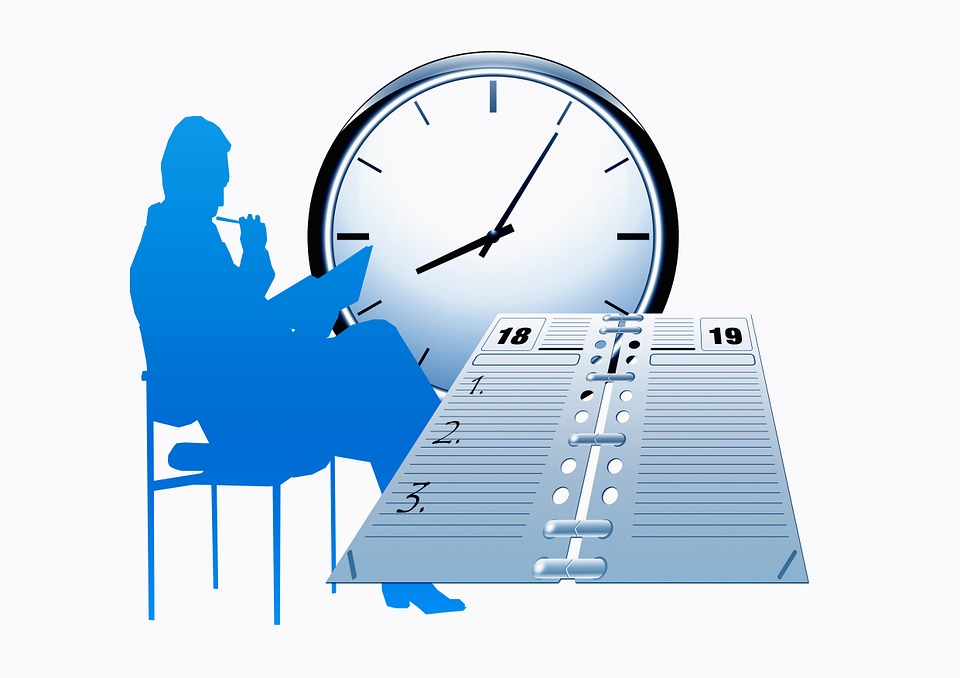The dissertation is typically the largest independent research and writing project a doctoral candidate has ever undertaken. Completing the dissertation successfully is an enormous and exciting achievement, but before the pride of accomplishment is yours to relish, first come many months and even years of heavy demands on your intellect, time, and energy. Illustrating the effects of these demands, the attrition rate for doctoral programs can range from 40% to 60% (Cosgrove, 2019).
Furthermore, researchers have found that online doctoral programs can have even higher dropout rates (Ruud, Saclarides, George-Jackson, & Lubienski, 2018). Given these alarmingly high attrition rates, strategies that help to support your persistence through the hard times while completing your dissertation are very important to consider if you want to be one of the successful candidates in your program.
Keeping in mind the core, driving motivation for completing the dissertation can help with maintaining persistence for many doctoral candidates (Spaulding & Rockinson-Szapkiw, 2012). But, obtaining support from others is often a vital ingredient for promoting retention and degree completion (Berry, 2017; Spaulding & Rockinson-Szapkiw, 2012). Cultivating relationships through which you can access such support is an important early step in preparing yourself to weather the challenges that lie ahead of you in the dissertation process.
In our blog, we focus often on the technical challenges of completing the dissertation, such as selecting a research problem, developing an aligned methodology, writing to scholarly standards, and conducting data analysis. But, in addition to mastering these technical elements, getting through to the finish line with your dissertation is also about managing stressors and keeping your life and mental health on track. Finding the right type of support to get through all of this is just as important as learning how to complete APA editing and conduct statistical analysis.
The research literature documents several specific types of stressors that are important to consider and plan for as you embark on your dissertation journey, and this article will review a few of these along with suggestions to help you think about ways to support yourself optimally when the going gets tough. In a general sense, the struggle to maintain balance across demands from school, work, and personal life is a common challenge that can lead to attrition in doctoral students (Martinez, Ordu, Della Sala, & McFarlane, 2013). Feeling as though you’re in over your head in terms of the research process is another commonly cited reason doctoral candidates have given for leaving (or thinking about leaving) their programs (Pyhältö, Toom, Stubb, & Lonka, 2012). Falling behind schedule and feeling unsupported by the dissertation committee have also been reported as common precursors to attrition (Barry, Woods, Warnecke, Stirling, & Martin, 2018; Hunter & Devine, 2016).
In the course of our dissertation consulting with doctoral candidates, we often hear from our clients these same feelings of being lost, unsupported, and stretched too thin. A good dissertation coach will help you through not only the technical difficulties but also the psychological challenges of completing the dissertation. So, to face these challenges head-on, we suggest that you recognize in advance the specific types of stressors you are likely to experience with your dissertation and then think about what might help you to get through these challenges successfully. With this understanding of the potential trials to come, you can then plan ahead so that you’re ready to handle these effectively should they arise.
Struggling to Maintain Your School-Work-Life Balance
Work-life balance is a term drawn from the organizational psychology literature that refers to a state where we’re able to reasonably manage the demands of both work and our non-work lives. This doesn’t necessarily mean that you have equal time for work and non-work activities, but that you feel that you’re able to “keep up” with both of these major spheres of adult life without collapsing from exhaustion or having a nervous breakdown. The same sort of balance is important for doctoral candidates, whether you are working full-time on your doctoral studies or juggling school, work, and even family all at once. This juggling act can be draining over an extended period, and in fact, doctoral candidates who were considering leaving their programs often reported that feelings of exhaustion and stress were at the root of these feelings (Pyhältö et al., 2012).
In the face heavy demands in multiple major life arenas, doctoral students expressed that it was important to make deliberate efforts to manage their time to maintain school-work-life balance (Martinez et al., 2013). Many of us are not accustomed to scheduling our personal time, but this type of forethought and planned structure will definitely help when taking on such a time-intensive project as a dissertation. Instead of simply planning to work on the dissertation “in your spare time,” it is important to schedule out blocks of time in advance to devote to research, writing, and editing to keep your dissertation moving forward. Our dissertation consulting clients have also shared that scheduling fun activities and relaxation time in advance can help with managing stress as well, as it ensures that you find the time for yourself in the midst of all this hard work.
In spite of these best-laid plans, however, doctoral candidates expressed that they often had to shift their priorities quickly to accommodate the unplanned needs that popped up in their lives while working on their dissertations (Martinez et al., 2013). One doctoral candidate referred to this as the “tyranny of the urgent” as she described her efforts to manage her constantly changing priorities (Martinez et al., 2013, p. 46). Urgent demands from work or personal life sometimes require that you work at a hectic pace or back-burner your dissertation.
Many of our clients approach professional dissertation consultants during such crunch times, and we’re certainly here to lighten your load when you might need this. Tasking out time-consuming tasks like editing and APA formatting is often a great strategy for freeing up your time when things get crazy, while also continuing to make progress on your dissertation. Maintaining such balance can be the difference between finishing your doctoral degree and dropping out, and this is where dissertation consulting can really come in handy.Feeling Like You Just Don’t Get It
Another major area of stress for doctoral candidates is that, having never conducted a study of their own design before, many feel lost and confused as they sort through the collection of decisions they face when starting the prospectus and dissertation proposal. Identifying a research problem and gap in the literature can be daunting the first time you try it. Understanding the different applications of quantitative versus qualitative research methods can be very confusing at first, and aligning the problem with the right methodology can be extremely difficult when you’re just learning how.
On top of the sheer difficulty of learning how to conduct scholarly research, the self-directed nature of the dissertation process can definitely contribute to feelings of being in over your head. Doctoral candidates reported that, in contrast to the more structured coursework leading up to their research projects, the dissertation was largely unstructured and required that they make tough decisions and develop core competencies independently (Spaulding & Rockinson-Szapkiw, 2012). Deciding on a topic, planning an aligned methodology, and developing scholarly writing skills in self-directed manner (i.e., without any outside help) was often reported as the most challenging aspect of earning a doctoral degree (Spaulding & Rockinson-Szapkiw, 2012).
The self-directed nature of the dissertation adds a particular level of challenge, as you need to be able to independently locate and review resources to guide your development of your research topic and methodology. For example, if you are planning a qualitative research and analysis approach, you need to locate authoritative sources on qualitative research methods, read these, and then weave the ideas from these sources into your written rationale for use of your chosen method. Peers, committee members, and even a good old-fashioned Google search can often help you to identify relevant sources. Many doctoral candidates also turn to a professional dissertation coach for additional support to fully develop their understanding of the complex concepts and processes involved in conducting a study.
Once the proposal has been developed and approved, then doctoral candidates must move through the steps of collecting data and analyzing it, which is often the first time many have engaged in this process. Analyzing data can be extremely challenging for the novice researcher. Qualitative analysis can be overwhelming due to the sheer volume of data to be managed along with the need to master qualitative analysis software such as NVivo. Statistical analysis can also be a very confusing process from start to finish, as reflected by one doctoral candidate’s succinct summation, “I hate statistics!” (Spaulding & Rockinson-Szapkiw, 2012, p. 208).
Many of you probably resonate with this perspective, and fortunately for you, being a professional statistician is not anywhere in the job description of the doctoral candidate. In fact, even seasoned researchers often turn to specialists when it comes to data analysis! So, if there is a faculty member at your university you can lean on for statistical consulting, or if you have a peer who has conducted qualitative analysis and can help light the way for you, reaching out to these sources of support can do wonders. In our provision of dissertation assistance, we also routinely offer guidance and assistance with both statistical analysis and qualitative analysis to doctoral candidates who need additional support to get through this very challenging segment of their studies.
Identifying and then leaning on appropriate sources of support will definitely help you to feel less “lost” with your dissertation, which will then help to alleviate stress and anxiety. Managing such distress will ultimately be very important for promoting your persistence through to degree completion. Illustrating this point, Pyhältö et al. (2012) found that doctoral candidates who were considering leaving their programs often cited high levels of anxiety and stress related to their dissertations.
The demands of the dissertation can make you feel as though you’re pushing up against your own limitations. Whether those limitations lie in areas like writing, completion of qualitative or statistical analysis, or even editing and formatting, without appropriate support, the anxiety and stress this induces has influenced many doctoral candidates to give up. So, with this in mind, we suggest that you plan ahead, find appropriate supports, and hang in there!
Falling Behind in Your Schedule
The demands of working on a project that is challenging both in terms of intellectual demands and sheer size can often lead to falling behind in the planned schedule for completing the dissertation. This can be very stressful for a number of reasons. Given that every term you are enrolled requires payment of tuition, the longer the dissertation process stretches out, the more you end up paying in full for the doctoral degree. The expense factor can be very stressful, and the feelings of failure to live up to your chair and committee’s expectations regarding academic progress certainly don’t help either. In extreme cases, falling behind in the dissertation schedule can result in candidates pushing up against the time limit imposed by the university program for completing the study. This can mean failure to obtain the degree or having to restart the process, bringing additional work, stress, and of course, cost.
Staying on a reasonable schedule is important for many reasons, but of particular importance is that mental health can actually suffer as the result of falling behind. Doctoral candidates who were behind schedule with their studies reported psychological stress, high anxiety, and even depression symptoms (Barry et al., 2018). When you’re facing a lengthy period of dissertation research that you know will be this challenging, it will definitely help to plan ahead so that you’re ready to take steps to effectively cope with threats to your psychological health. According the transactional model of stress and coping, coping strategies can be either problem-focused or emotion-focused (Lazarus & Folkman, 1984). Choosing the most effective type of coping strategy hinges upon sizing up the nature of the stressor that lies in front of you.
When the stressor you’re facing is something that you have control over, then problem-focused coping is ideal. Problem-focused coping refers to actions that help you to solve the underlying problem that is causing you stress. One such underlying problem that doctoral candidates reported often was finding the time to work on the dissertation (Spaulding & Rockinson-Szapkiw, 2012). In this case, a problem-focused coping approach would involve taking proactive steps to free up time to devote to your dissertation. You might schedule weekly play dates for the kids so that you have reliable, distraction-free time for research, writing, and editing. You might use a few vacation days from work to free up several hours of time to devote to writing your literature review or completing your statistical or qualitative analysis after data collection.
Even when you regularly devote time to working on your dissertation, another frustrating experience that can cause you to fall behind is failure to obtain approval on specific sections of the work. Many of our clients describe going through round after round of revisions and editing on specific areas of their proposals or dissertations, only to receive yet another collection of critical comments from their committees. In this situation, enlisting the aid of dissertation assistance professionals can be a great problem-focused strategy for troubleshooting aspects of the study that are becoming sticking points. Resolving these areas of setback more efficiently will help to get you back on track with your dissertation timeline, which will definitely relieve some stress.
As mentioned previously, problem-focused coping is optimal when the stressor you’re facing is one that you actually have some control over. But, what about those stressors that we cannot control? In these cases, emotion-focused coping is the way to go. Emotion-focused coping refers to actions you take that just help you to feel better, even though the underlying stressor might remain present.
Although problem-focused strategies to keep on schedule with the dissertation were endorsed by doctoral candidates, many also shared that taking time for their own enjoyment and relaxation was important for maintaining their well-being (Martinez et al., 2013). So, if you’ve taken all of the steps possible to stay on schedule but still fall a bit behind, try to work in some self-care and relaxation to boost your spirits. This might just give you the strength to keeping pushing forward!
Feeling Unsupported by Your Chair or Committee
Given the many challenges of completing the dissertation, your chair and committee are essential supports for guiding you through this process from start to finish. Developing a research topic and aligned methodology, writing a literature review, conducting your qualitative or statistical analysis, and interpreting your findings are all major steps in the dissertation process that require clear and constructive guidance from your committee members. When committees fail to guide and help you appropriately, the feelings of being lost and confused we discussed previously are only exacerbated. When committee guidance is unclear or sends you in different directions depending on which committee member is giving you feedback, the potential for falling behind schedule and/or throwing your life out of balance is heightened as well.
If you’re recognizing your own experiences here, you’re not alone. In fact, Spaulding and Rockinson-Szapkiw (2012) found that difficulties communicating productively with or meeting the divergent expectations of their different committee members were commonly reported problems among doctoral candidates. Doctoral candidates also shared a common frustration over having to rework their dissertations after they thought they had everything just right, all because their committee members kept changing their minds about what they wanted (Spaulding & Rockinson-Szapkiw, 2012).
In our dissertation consulting experience, we hear about these types of experiences so often, and having a teammate in the process who can help you cope with difficult committees can be enormously helpful. Importantly, Hunter and Devine (2016) found that doctoral candidates who reported lower perceived levels of supervisor and department support also reported higher levels of emotional exhaustion and intentions to leave their programs. So, whether you reach out to peers or professional dissertation consultants (or both), we hope that you seek out support if you’re faced with a committee that is running you ragged. Don’t give up!
Final Thoughts
The prestige of a doctoral degree comes with tons of hard work and dogged persistence. When describing the factors that boosted their persistence, doctoral candidates commonly reported that support systems had a very positive influence (Spaulding & Rockinson-Szapkiw, 2012). These support systems might vary from one doctoral candidate to the next, depending on the nature of your peer group and formal supports. Notably, online doctoral candidates agreed that supportive relationships with peers were important, but some with very busy work schedules expressed difficulty forming supportive social relationships with peers (Berry, 2017).
Considering all of the above findings, we can see that there is no “one size fits all” support system for getting through the dissertation. Some doctoral candidates rely heavily on peers in their cohorts to help them through the hard times, some have fabulous committees, and some call in the professionals when dissertation assistance is needed. A support system comprised of all of these can also be particularly helpful. But, the main lesson to keep in mind is that supporting yourself to manage the various stressors that arise during the dissertation will help give you the strength to persist through to the finish line. We’re here as your teammate should you need us, and to celebrate your successes along the way!
References
- Barry, K. M., Woods, M., Warnecke, E., Stirling, C., & Martin, A. (2018). Psychological health of doctoral candidates, study-related challenges and perceived performance. Higher Education Research & Development, 37(3), 468-483. doi:10.1080/07294360.2018.1425979
- Berry, S. (2017). Student support networks in online doctoral programs: Exploring nested communities. International Journal of Doctoral Studies, 12, 33-48. Retrieved from https://scholarlycommons.pacific.edu/cgi/viewcontent.cgi?article=1043&context=ed-facarticles
- Cosgrove, P. B. (2019). The nature of success in doctoral education: The roles of the student, the advisor, and goals. In Self-Directed Learning Strategies in Adult Educational Contexts (pp. 90-109). Hershey, PA: IGI Global.
- Hunter, K. H., & Devine, K. (2016). Doctoral students’ emotional exhaustion and intentions to leave academia. International Journal of Doctoral Studies, 11, 35-61. Retrieved from http://ijds.org/Volume11/IJDSv11p035-061Hunter2198.pdf
- Lazarus, R. S., & Folkman, S. (1984). Stress, appraisal, and coping. New York, NY: Springer.
- Martinez, E., Ordu, C., Della Sala, M. R., & McFarlane, A. (2013). Striving to obtain a school-work-life balance: The full-time doctoral student. International Journal of Doctoral Studies, 8, 39-59. Retrieved from http://informingscience.com/ijds/Volume8/IJDSv8p039-059Martinez0375.pdf
- Pyhältö, K., Toom, A., Stubb, J., & Lonka, K. (2012). Challenges of becoming a scholar: A study of doctoral students’ problems and well-being. ISRN Education, 2012, 1-12. doi:10.5402/2012/934941
- Ruud, C. M., Saclarides, E. S., George-Jackson, C. E., & Lubienski, S. T. (2018). Tipping points: Doctoral students and consideration of departure. Journal of College Student Retention: Research, Theory and Practice, 20(3), 286–307. doi:10.1177/1521025116666082
- Spaulding, L. S., & Rockinson-Szapkiw, A. J. (2012). Hearing their voices: Factors doctoral candidates attribute to their persistence. International Journal of Doctoral Studies, 7(1), 199-219. Retrieved from http://informingscience.com/ijds/Volume7/IJDSv7p199-219Spaulding334.pdf








